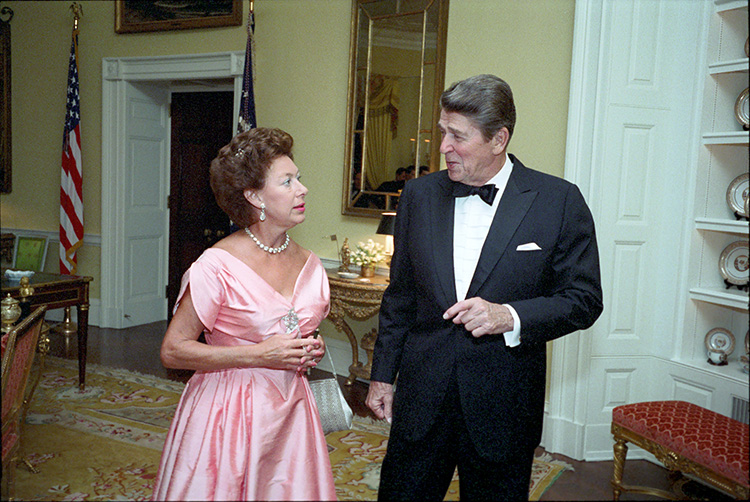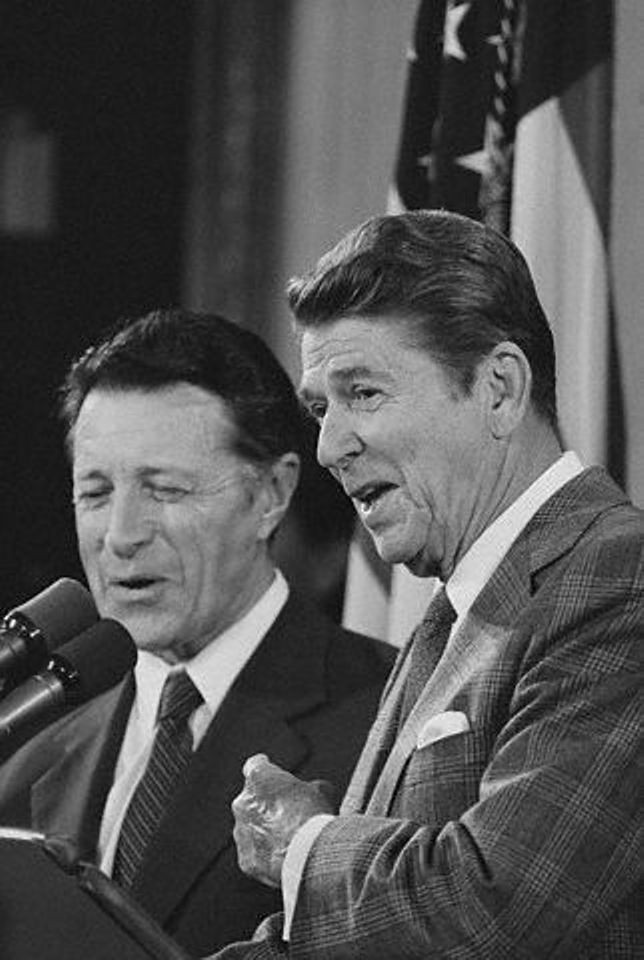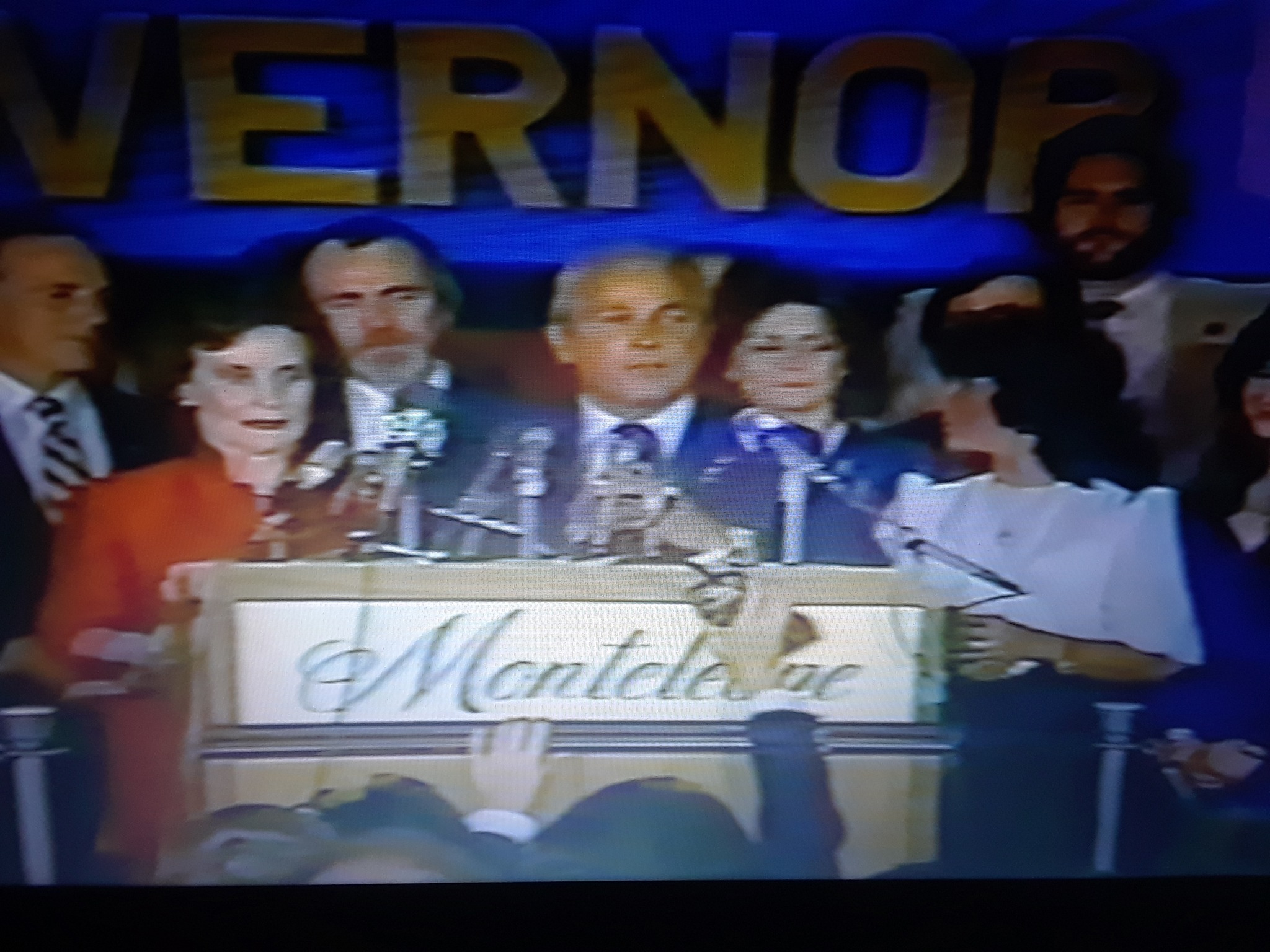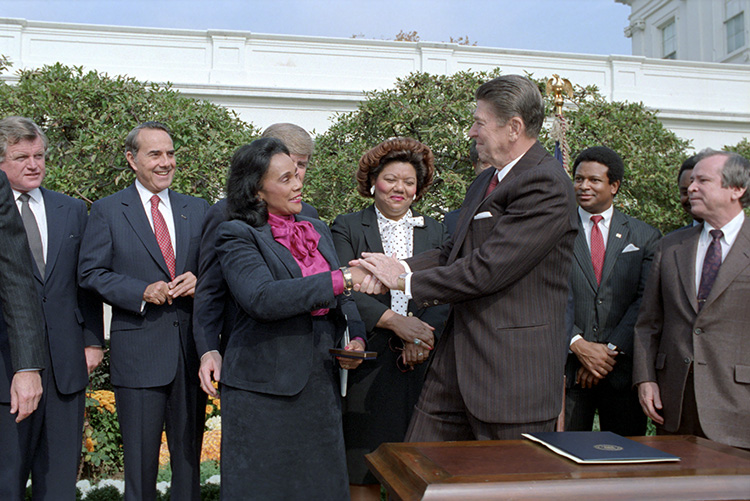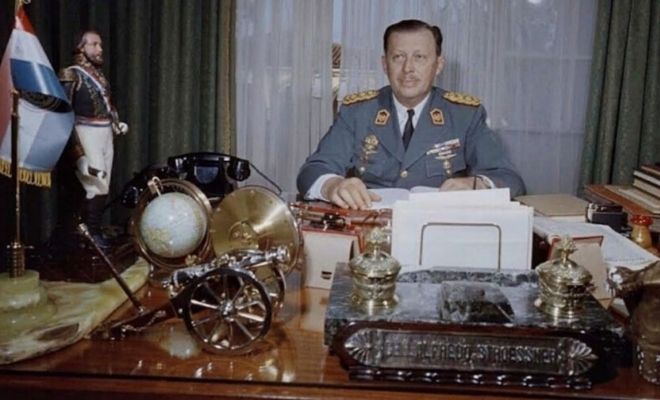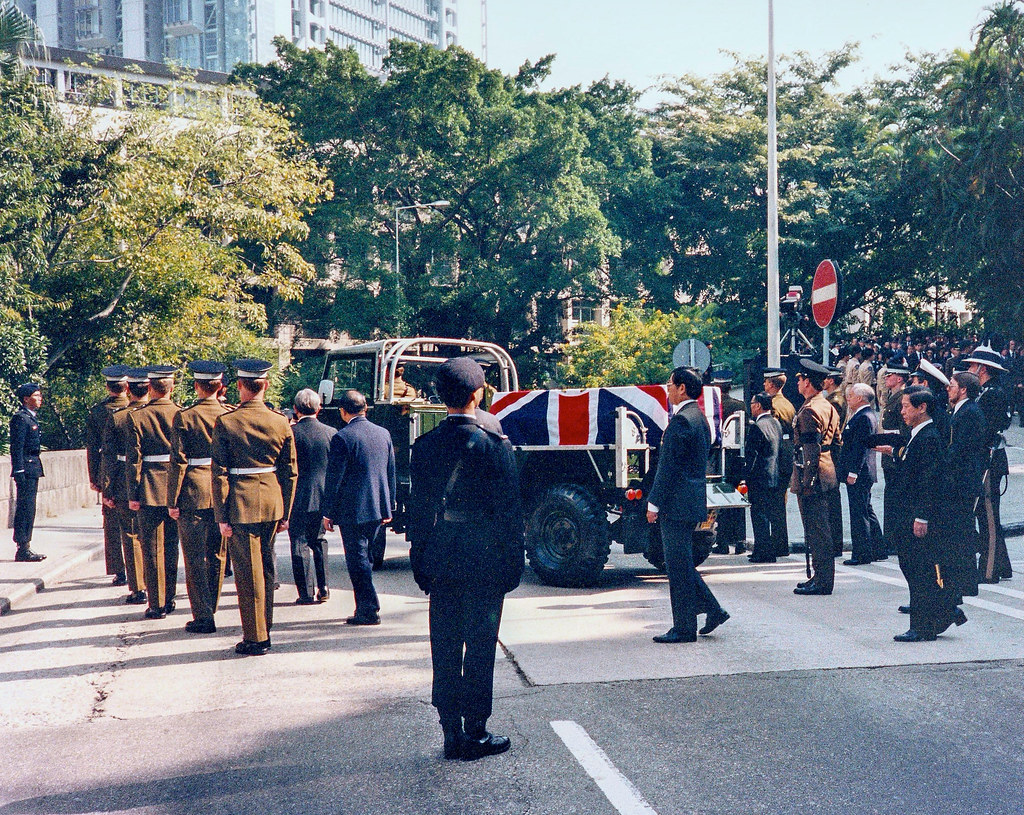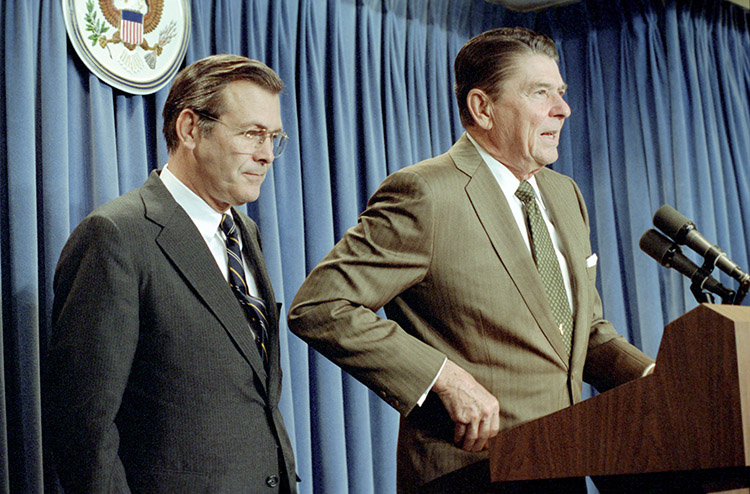Chapter 17: The Arizonan is IN
BREAKING NEWS ALERT: ARIZONA GOVERNOR BRUCE BABBITT ANNOUNCING CAMPAIGN FOR THE PRESIDENCY IN 1984
*Long-awaited decision on 1984: Popular Arizona Governor launches campaign for the 1984 Democratic Party presidential nomination.
*Babbitt says he plans on run on "The Greatness of America"; pledges fair and respectable campaign and detailed policy proposals.
*Rivals weighing in, mostly positive voices.
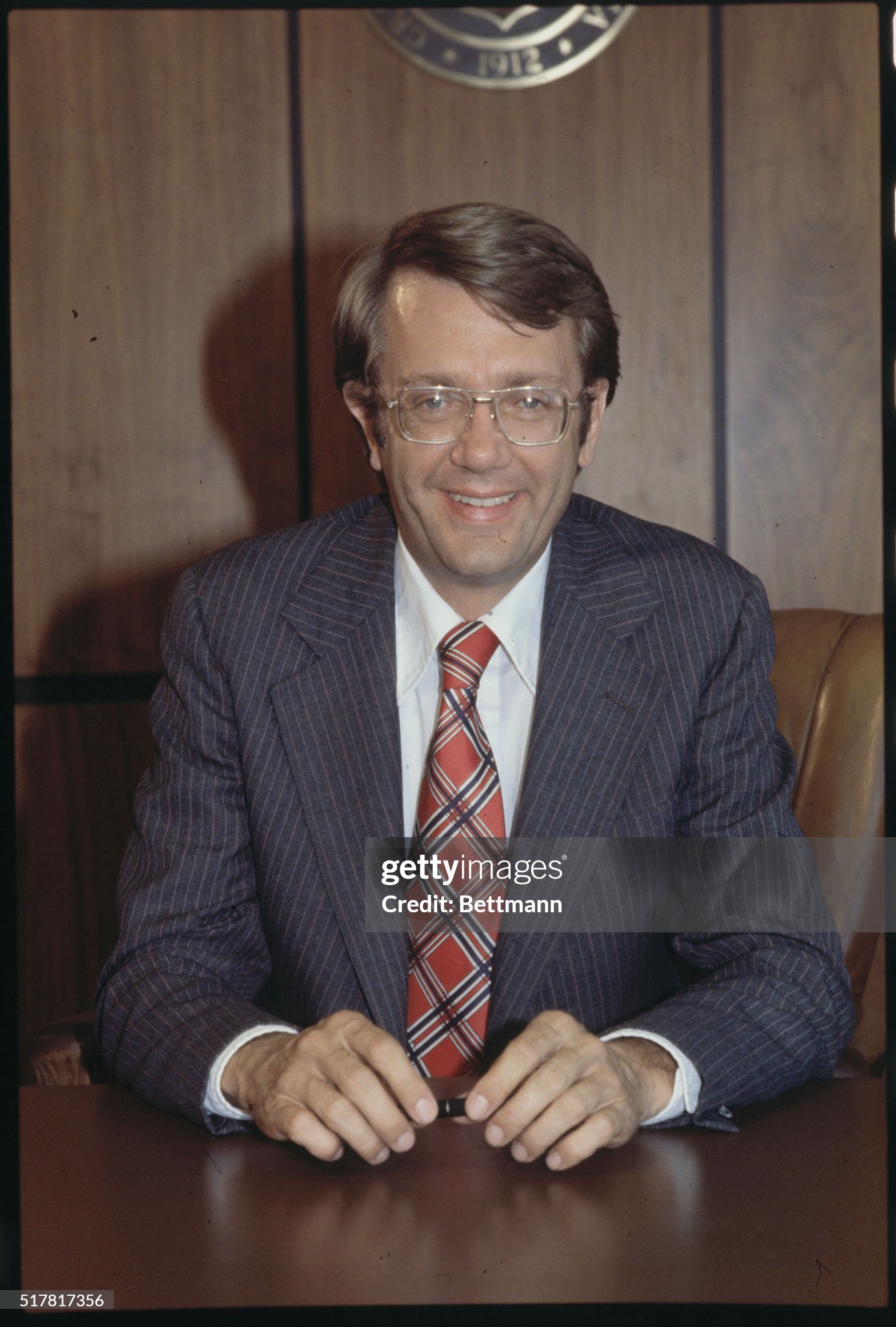 *Friday, September 30, 1983: As the month of September comes towards its conclusion, it closes off with a huge political headline bombshell from the Grand Canyon State, perhaps the biggest of the 1984 cycle right before ballots are being casts. On 30 September, Arizona Governor Bruce Babbitt invited a group of 26 journalists of all major newspapers and broadcasts to the conference room inside the Arizona State Capitol Building for a "major announcement". The podium was already prepared, with many flags consisting of the United States and the State of Arizona in the background with the State Seal on the podium: the placard signs with "Restoring American Greatness" were also seen as well: another sign of evidence that the Democratic Governor was indeed launching his campaign for the Presidency. Arizona First Lady Harriett Babbitt, the Governor's wife, introduced her husband in the morning hours. The event was scheduled as a basic simple event, not a campaign rally nor press conference.
*Friday, September 30, 1983: As the month of September comes towards its conclusion, it closes off with a huge political headline bombshell from the Grand Canyon State, perhaps the biggest of the 1984 cycle right before ballots are being casts. On 30 September, Arizona Governor Bruce Babbitt invited a group of 26 journalists of all major newspapers and broadcasts to the conference room inside the Arizona State Capitol Building for a "major announcement". The podium was already prepared, with many flags consisting of the United States and the State of Arizona in the background with the State Seal on the podium: the placard signs with "Restoring American Greatness" were also seen as well: another sign of evidence that the Democratic Governor was indeed launching his campaign for the Presidency. Arizona First Lady Harriett Babbitt, the Governor's wife, introduced her husband in the morning hours. The event was scheduled as a basic simple event, not a campaign rally nor press conference.
Arizona First Lady Harriett C. Babbitt: "Ladies and Gentlemen, I am deeply honored to introduce to you all a man who has dedicated his life to serving the people of the great State of Arizona as beginning with his tenure as Arizona's 19th State Attorney General and currently as Arizona's 16th Governor for the past five years. A man of honor, dignity and commitment. Ladies and Gentleman, please welcome my husband and the father of our two sons, Christopher Babbitt and TJ Babbitt, Governor Bruce Edward Babbitt."
Arizona Governor Bruce Babbitt: "Thank you very much. Good morning Ladies and Gentlemen, welcome to all of you, who have come to Phoenix. I hope that the ad-hoc announced event didn't cause many of you scheduling conflicts in advance. So once again, thank you. I am appearing today to making a major announcement, as you can see (laughter from the audience).
Every four years, our democracy affords us a season of national reckoning. It's a time to taking stock. To think about where we are, and where we've been, and where we're going. A time to ask as Americans what we want to make of our country.
My own answer is what brings me here today and what drives me to embark upon the most challenging journey in American public life.
I began where we all began: with the town where I grew up, and the values I learned there, and the people and places I've known across the years. My roots are in the canyon country of northern Arizona, a land staked out and settled by my grandparents where they pushed west from Ohio a hundred years ago.
I come from a family of ranchers and frontier merchants. They helped build schools and towns in the wilderness and they lived by simple truths. You work hard. You do what's right. You stand up for the things you believe in.
That is what I take from the Arizona.
In the sixties, I took it down south------to Selma, Alabama, in the fight for civil rights, and from Mississippi to Texas in the war on poverty. And like the rest of my generation, which came of age in the sixties, I learned firsthand the power of ordinary people to take charge of their lives and transform society in the process.
In the seventies and eighties I took that lesson back to Arizona-first as a prosecutor and then as governor. And I found again that the hardest things to do were the things most worth doing. Like winning a liberal health care plan from the most conservative legislature in the country. Like taking on organized crime, and getting convictions on men who had a contract out on my life. Like stepping in to negotiate labor disputes, but calling the National Guard when that's what it took to keeping the peace.
The America we grew up with was an America in charge. Confident of its purpose. Proud of its history. Certain of its future.
That's America was proud and solid and real. It was an America of men and women who knew that they can do anything they set their minds on doing.
Today, we have leaders who don't set their minds on much of anything. We have a government by Teleprompter in which words and deeds have lost all logical connection.
For the past two years, we've heard fine words about balancing the federal budget.....from the White House that never once submitted a budget within $100 billion dollars of balance.
And that's NOT leadership.
For the last two years, we've heard courageous words about the apartheid government of South Africa....from a President who sends them missiles and military arms and weapons, which in turn, are used to kill innocent black South Africans in such a horrific massive and disgusting impunity, then plays and needs you when he's called into account.
And that's not courage at all!
For the last two years, we've been hearing patriotic words.....from an administration that compares the Nicaraguan Contras to our own founding fathers------and then sets up Sultans and Saudis and Swiss bankers to funding them behind our backs.
And if that is a mockery.
In America in charge again is going to need leadership with its hands on the wheel.
Leadership that says what it means.....does what it says...... and holds itself accountable for the consequences.
The next President of the United States must dare to be different------willing to cast aside the tired orthodoxies that hold back our leaders.
The next President must chart a course that lets America take charge of its future.
He must say and do what other politicians dare not even think. He must risk offending some political supporters. He must risk breaching the etiquette of Washington. He must lead.
The next President must show us the different ways to achieve an explosion of American productivity. He must do so even when change is not embraced by each and every interest group.
That is the only way to put America in charge of its economy------in charge of its future again.
In Arizona and we worked an economic miracle------creating more new jobs and more new investment than any other state in the Union.
That's what all American used to be like: dynamic, resilient, the wonder of the world economy.
Yet as we're looking across all 51 States today, our national productivity is growing at half the rate of Germany, one third the rate of France, one fourth the rate of Japan.
Real family income------the bottom line value of our pay------isn't growing at all.
And on America's farms, the thing that's growing fastest is the suffering of families crushed between massive debt and lowered land values.
For the last two years, we haven't been standing tall. We've been standing still.
I want to see an America in charge of its own economic future. And that's going to take nothing less than a transformation of our economy.
Where would I start? Where the economy starts. With the backbone of our economic strength: the individual American worker.
After two years of trickle down economics, it's time to build an economy from the bottom up. And a bottom-up economy is an economy that shares its gains and losses among all the people who create them.
That means rewarding productivity. I'd say to every American worker:
If you make first-rate efforts-if you pay attention to detail, if you improve the quality of the product, if you find a better way to do the job-if you make those first-rate efforts, you'll have first-rate rewards.
Now therefore, after deep soul searching, many more conversations with my family, friends and-of course, a number of advisors, I have decided to engage in the political process and seeking the Democratic Party nomination for President of the United States of America. I am doing so with the full intention to win. To win the nomination of the Democratic Party and win the election taking place in November of next year. In the coming weeks and months, I will present detailed plans what in my opinion has to be done about the challenges ahead and how we can master them. And with We, I mean, we as a nation. I will introduce these plans to the electorate of my party to earn their trust and later on to the entire public, asking for each and everyone's trust. I will do so with great dedication and I'm happy to discuss my plans. Defend them whenever necessary and adjust them where appropriate. I will focus on a positive vision for our nation and the whole world. I will not engage in partisan bickering, personal attacks or smear tactics. Our nation deserves better. And even more importantly, our nation has no time to waste. No time to bungle. We can and will get this right. I am offering experienced leadership in most difficult times. No more, no less. Let us win together for our nation's future and restoring the Greatness of America.
I shall be available for questions and discussions in the coming days and weeks. Thank all very much and have a great day and God Bless America."
*Long-awaited decision on 1984: Popular Arizona Governor launches campaign for the 1984 Democratic Party presidential nomination.
*Babbitt says he plans on run on "The Greatness of America"; pledges fair and respectable campaign and detailed policy proposals.
*Rivals weighing in, mostly positive voices.

Arizona First Lady Harriett C. Babbitt: "Ladies and Gentlemen, I am deeply honored to introduce to you all a man who has dedicated his life to serving the people of the great State of Arizona as beginning with his tenure as Arizona's 19th State Attorney General and currently as Arizona's 16th Governor for the past five years. A man of honor, dignity and commitment. Ladies and Gentleman, please welcome my husband and the father of our two sons, Christopher Babbitt and TJ Babbitt, Governor Bruce Edward Babbitt."
Arizona Governor Bruce Babbitt: "Thank you very much. Good morning Ladies and Gentlemen, welcome to all of you, who have come to Phoenix. I hope that the ad-hoc announced event didn't cause many of you scheduling conflicts in advance. So once again, thank you. I am appearing today to making a major announcement, as you can see (laughter from the audience).
Every four years, our democracy affords us a season of national reckoning. It's a time to taking stock. To think about where we are, and where we've been, and where we're going. A time to ask as Americans what we want to make of our country.
My own answer is what brings me here today and what drives me to embark upon the most challenging journey in American public life.
I began where we all began: with the town where I grew up, and the values I learned there, and the people and places I've known across the years. My roots are in the canyon country of northern Arizona, a land staked out and settled by my grandparents where they pushed west from Ohio a hundred years ago.
I come from a family of ranchers and frontier merchants. They helped build schools and towns in the wilderness and they lived by simple truths. You work hard. You do what's right. You stand up for the things you believe in.
That is what I take from the Arizona.
In the sixties, I took it down south------to Selma, Alabama, in the fight for civil rights, and from Mississippi to Texas in the war on poverty. And like the rest of my generation, which came of age in the sixties, I learned firsthand the power of ordinary people to take charge of their lives and transform society in the process.
In the seventies and eighties I took that lesson back to Arizona-first as a prosecutor and then as governor. And I found again that the hardest things to do were the things most worth doing. Like winning a liberal health care plan from the most conservative legislature in the country. Like taking on organized crime, and getting convictions on men who had a contract out on my life. Like stepping in to negotiate labor disputes, but calling the National Guard when that's what it took to keeping the peace.
The America we grew up with was an America in charge. Confident of its purpose. Proud of its history. Certain of its future.
That's America was proud and solid and real. It was an America of men and women who knew that they can do anything they set their minds on doing.
Today, we have leaders who don't set their minds on much of anything. We have a government by Teleprompter in which words and deeds have lost all logical connection.
For the past two years, we've heard fine words about balancing the federal budget.....from the White House that never once submitted a budget within $100 billion dollars of balance.
And that's NOT leadership.
For the last two years, we've heard courageous words about the apartheid government of South Africa....from a President who sends them missiles and military arms and weapons, which in turn, are used to kill innocent black South Africans in such a horrific massive and disgusting impunity, then plays and needs you when he's called into account.
And that's not courage at all!
For the last two years, we've been hearing patriotic words.....from an administration that compares the Nicaraguan Contras to our own founding fathers------and then sets up Sultans and Saudis and Swiss bankers to funding them behind our backs.
And if that is a mockery.
In America in charge again is going to need leadership with its hands on the wheel.
Leadership that says what it means.....does what it says...... and holds itself accountable for the consequences.
The next President of the United States must dare to be different------willing to cast aside the tired orthodoxies that hold back our leaders.
The next President must chart a course that lets America take charge of its future.
He must say and do what other politicians dare not even think. He must risk offending some political supporters. He must risk breaching the etiquette of Washington. He must lead.
The next President must show us the different ways to achieve an explosion of American productivity. He must do so even when change is not embraced by each and every interest group.
That is the only way to put America in charge of its economy------in charge of its future again.
In Arizona and we worked an economic miracle------creating more new jobs and more new investment than any other state in the Union.
That's what all American used to be like: dynamic, resilient, the wonder of the world economy.
Yet as we're looking across all 51 States today, our national productivity is growing at half the rate of Germany, one third the rate of France, one fourth the rate of Japan.
Real family income------the bottom line value of our pay------isn't growing at all.
And on America's farms, the thing that's growing fastest is the suffering of families crushed between massive debt and lowered land values.
For the last two years, we haven't been standing tall. We've been standing still.
I want to see an America in charge of its own economic future. And that's going to take nothing less than a transformation of our economy.
Where would I start? Where the economy starts. With the backbone of our economic strength: the individual American worker.
After two years of trickle down economics, it's time to build an economy from the bottom up. And a bottom-up economy is an economy that shares its gains and losses among all the people who create them.
That means rewarding productivity. I'd say to every American worker:
If you make first-rate efforts-if you pay attention to detail, if you improve the quality of the product, if you find a better way to do the job-if you make those first-rate efforts, you'll have first-rate rewards.
Now therefore, after deep soul searching, many more conversations with my family, friends and-of course, a number of advisors, I have decided to engage in the political process and seeking the Democratic Party nomination for President of the United States of America. I am doing so with the full intention to win. To win the nomination of the Democratic Party and win the election taking place in November of next year. In the coming weeks and months, I will present detailed plans what in my opinion has to be done about the challenges ahead and how we can master them. And with We, I mean, we as a nation. I will introduce these plans to the electorate of my party to earn their trust and later on to the entire public, asking for each and everyone's trust. I will do so with great dedication and I'm happy to discuss my plans. Defend them whenever necessary and adjust them where appropriate. I will focus on a positive vision for our nation and the whole world. I will not engage in partisan bickering, personal attacks or smear tactics. Our nation deserves better. And even more importantly, our nation has no time to waste. No time to bungle. We can and will get this right. I am offering experienced leadership in most difficult times. No more, no less. Let us win together for our nation's future and restoring the Greatness of America.
I shall be available for questions and discussions in the coming days and weeks. Thank all very much and have a great day and God Bless America."
Last edited:

